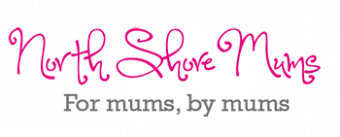Heading back into the workforce? Here’s how to really nail that job interview!
Have you ever walked out of a job interview thinking you had performed well and then were subsequently told you didn’t get the job?
You probably had positive feedback along the lines of: ‘We were very impressed with you and it came down to you and one other. However, the other person had more direct experience than you’ or ‘You interviewed well, however we felt you weren’t quite the right fit for us’.
As a recruiter, headhunter and career coach for more than 15 years, I’ve come across this so many times I’ve literally lost count.
So why does this happen? You think you’ve prepared for the interview, done your research, even performed well on the day, but you just can’t seem to get closure. You might expect me to reassure you at this point, and tell you not to take it personally, or to heart, as it’s not about you.
Well, I’m afraid it could be.
And here’s where I’m going to let you in on a little secret.
The no. 1 reason why an interview may not lead to a job offer is because you may not know your value. It IS all about YOU – specifically, believing in and knowing your value and then being able to communicate it.
So, if I were to ask you right now what your value is, would you be able to give me at least five different responses?
Let me put it another way. Think of the last substantial item you bought from a shop or online. Why did you decide to purchase it? Because you thought it was of value to you, right? If you bought it from a shop, you may have even asked the shop assistant questions about the item to establish if it was of value to buy. For example, for a fridge, you might ask what different functions does it have, what sets it apart from the other brands, why is this particular brand better? Once the value of an item is established for your, you often make the decision to purchase.
The importance of knowing your value
I read somewhere recently that confidence is something you create within yourself by believing in who you are. However it’s not just about believing in yourself which, of course, is essential. It’s truly about knowing your value. When you know your value, you are more confident of what you have to offer, which will mean you are more likely to stand out from the crowd.
Having interviewed as well as interview trained hundreds (possibly thousands!) of professionals over the years, I can guarantee you that it was the confident candidates/job seekers who knew their value who were the most successful.
Communicating your value
Let’s take it one step further. It’s not just about knowing your value. It’s also knowing how to effectively communicate your value. And not just during the interview stage. This effective communication needs to happen from the very beginning of the job application process when you submit your resume and cover letter.
Being able to effectively communicate your value consistently throughout the entire job-hunting process will significantly increase your chances of getting the successful outcome you want.
I have seen and experienced it myself too many times to know that NOT to do this can be fatal.
Another relevance of knowing your value is when you reach the salary negotiation stage. If you know exactly what you have to offer, and what this is worth in the current market, you are in a stronger position to negotiate the salary you desire.
Finding your true value
To go about finding out what your value is and honing in specifically on this, you will need to list what I call your ‘unique selling points’ as follows…
- List your strengths. Not only in a business/professional context, but also in a personal context. The job market is so competitive nowadays, so it is not just about finding the right match in terms of skills and expertise, it is also about the right personality fit. If you are struggling to put this together, ask your work colleagues, friends and family.
- List your hard skills (for example, specific technical abilities and knowledge) and soft skills (such as strong communication skills, very organised, team player).
- Now list your professional and extracurricular achievements. Employers are also interested in what accomplishments you have outside of the workplace as, more often than not, they are looking for well-rounded individuals and people who can achieve in different contexts.
These points will all help you stand out from the crowd. Once you have your lists, you have your value, and you are well on your way to securing that job you have worked so hard for.
Knowing your value is one of the most important learnings I have come across in all my years of working in the recruitment/HR/headhunting markets. And it has helped me personally secure every career and job change.
So go ahead, write your lists. By investing the time at the beginning of the process to do this, you could save yourself a lot of heartache, frustration, anxiety and stress in the long-term. No matter how strong we think we are, there are only so many rejections any one person can or should need to handle. You might even surprise yourself with how much value you can identify and bring to a prospective employer.
Remember, every role or position you take on, whether it be employed or self-employed, will influence and affect the next one, so be strategic in terms of your bigger picture and make each one count.
Mimi Fong is happy to help and share her knowledge, resources and expertise. For more information and free resources, see her website and Facebook pages.
Tell us. How have you fared in job interviews? Have you won over your interviewer? Or do you lack in self-confidence and value? Share your stories in the comments section below.
More on careers…












